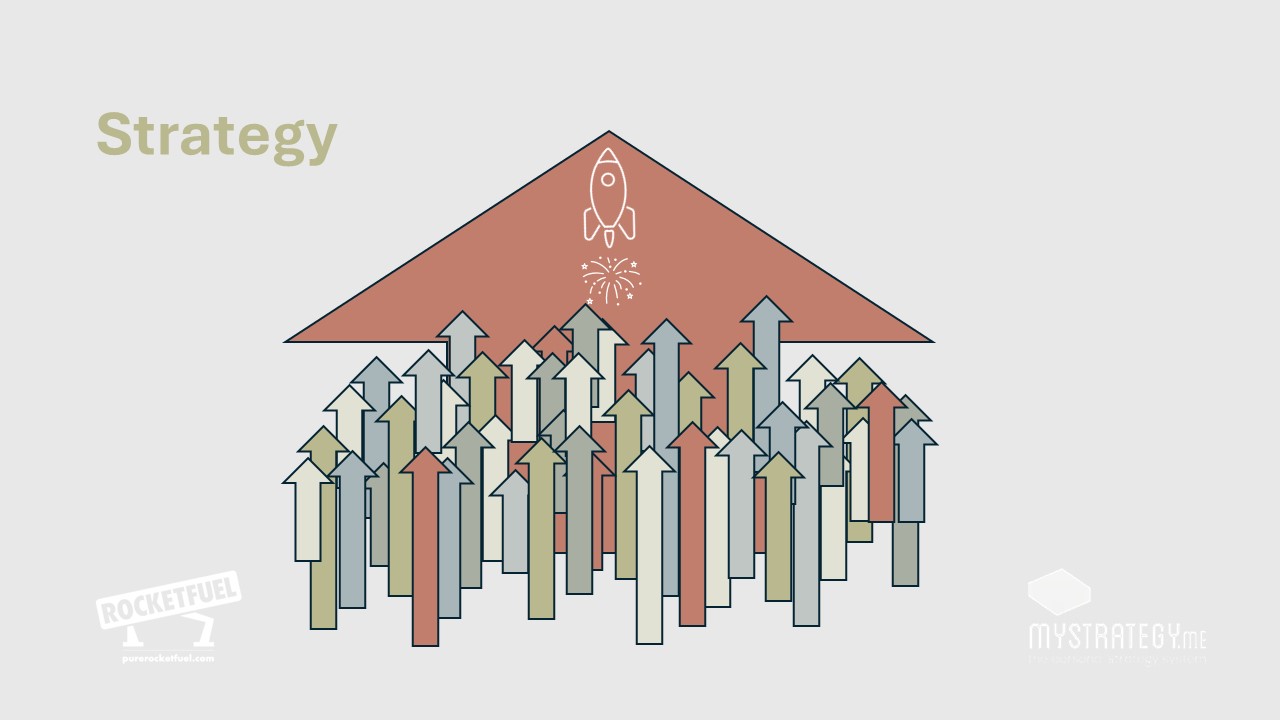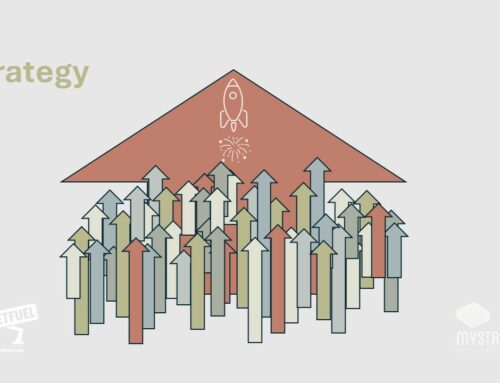
Be mindful of whether “busy-ness” (reactive, auto-pilot) has overtaken actual “management” (proactive, purposeful), advises Leadership & Performance Coach, Davina Greene.
According to the Oxford Dictionary – in a definition that really trims things back to the core – management is the process of dealing with or controlling things or people.
When we claim excessive “busy-ness” on a medium- to long-term basis (to the extent that normal managerial tasks are routinely not being completed in full, or at all) it implies that something has indeed gone out of control and needs to be dealt with. Busy-ness needs to be managed, like anything else.
What is busy-ness? At its core, it is the feeling that we have more to do than we have the time or energy to achieve. Most people want to be “nicely busy” – there’s nothing worse than a day where 8 hours feel like 100 hours. However, nobody wants to be endlessly run off their feet when it’s accompanied by a gut feeling that there’s a better way.
As renowned US basketball coach, John Wooden, famously said: “Never mistake activity for achievement”.
All of the busy-ness you yourself experience, or see from your employees as a senior leader, may be doing nothing to further your strategy.
Match the Busy-ness Dynamics to the Team Stage
First, before leaping into negativity – or action – it is important to remember the stage of development of the situation you’re in. Anyone who has been coached by me in a business context will, during moments of panic, have been reminded of Tuckman’s Form-Storm-Norm-Perform. Context is everything.
Those 4 stages – whether at team, unit, site, or company level – have different needs, make different demands on us, and require us to change tactics along the way. You know, to manage!
This includes recognizing if a situation is temporary: in which case, simply grit your teeth and get on with it.
Here, I’m talking about something that seems a little bit more permanent, or like the Form-Storm process is on a high-speed loop.
How can a ‘Culture of Busy-ness’ happen?
It’s very common these days, and can arise, for example:
- Because it’s how society has shifted – we all, individually, bring in the mindset that “busy is good”. The business therefore absent-mindedly interprets busy-ness as excellence.
- If there are no, or not enough, Administrative Management Styles in the Management headcount.
- The alternative verbal, ‘folklore’ style of management means endless explanations, misunderstandings and delays due to poor Knowledge Management.
- The desire to “sit, analyze and solve” for efficiency is low, so the key source of the solution remains unclear.
- Related conversation is all “feeling”, little “fact”.
- If a “This is how we do things here” spirit carries forward, ignoring the business growth and change.
- If all focus is on Results, but not on the efficiency of how results are achieved (the opposite of our old school math tests, where you had to “show your workings”, not just the result).
- If Meetings are not well-run, people dread them and prefer ploughing ahead with the status quo, bypassing the whole ‘management’ of the situation.
- Busy-ness comes from human decisions and behaviors – when we don’t have a coaching culture that routinely questions how we think and act, busy-ness is slower to be spotted and solved.
Busy-ness can also take hold at a personal level. For example:
- Fear of new tasks e.g. “I’ll keep doing lots of old things that make me look good/busy, while I slowly go about learning the new things.”
- The feeling of security e.g. “I’m really important, you know…I mean, look how frantically busy I am all the time, you couldn’t possibly survive without me”.
- The feeling of glamour e.g. in the pub on a Friday night “Oh, my job is so crazy, it never stops…I’m so important in there, I’m so relied-upon”.
- Excessive respect/politeness e.g. “I’m new to the role/company, so I should let one of the old-timers/internals solve it”, meaning the recipient of your respect stays busy.
Busy-ness Solutions
Busyness, to a large degree, is decided, embedded, and accepted by us individually and collaboratively. Often unconsciously, but sadly also consciously. For whatever reason, we decide not to do the work, or have the conversations, to solve it.
We should solve it, because it can impede real learning and growth, and impact perceived professionalism as you miss meetings, break promises, limit your range of tasks….
What choices should you make to solve Busy-ness?
- Sacrifice time to save time: Unfortunately, we must spend time working out how to save time – the standard ‘review and planning’ steps apply.
- Aim to work smart, not hard. A simple, regular Stop-Start-Continue conversation can solve a multitude of woes.
- Engage quickly with other people of your level/role on high-level issues, to solve common problems through shared knowledge and experience. Gather, then divide and conquer.
- Write things down so that people can easily access all types of information without involving you.
- Trust your colleagues (or address and resolve why you don’t). Don’t delay solutions just because you can’t get to the meeting.
- Stretch into the Administrative style of management, even if you hate it. Sometimes, you just need to ‘do the math’ and make your business case (if there is one).
- Team-coach on behaviors and expectations, rather than maturing your team one-by-one, for faster, trustworthy delegation.
- Keep an eye on your Strategy, and ruthlessly gauge whether your busy-ness is aligned to it, and therefore progressing it.
During busy-ness, it’s easy to forget your full role, which under the circumstances includes:
- From role expectations: What you do (e.g. unavoidable client work) +
- From role expectations: What you half-do (e.g. “occasional” 1-to-1s with your direct reports) +
- From role expectations: What you don’t get to do at all (e.g. auditing the performance of expected Procedures by your reports) +
- Your ideas for the future of your role/team
All these factors need to be on the table when discussing and solving busy-ness. There will be lists, spreadsheets, perhaps even stop-watches, involved, I’m afraid. You have to understand and fix the right problems (unless you’d prefer to continue the pretense that you’re doing the job you’re supposed to be doing, that you’re growing as a manager at all).
The more time we spend building good foundations, as above, the more we’re helping our future selves, even if the effort is painful right now.
Coaching for a Mindset Shift
This problem happens everywhere. As those coached by me will know, one of my Top 3 team mantras for the past 20 years has been “Results, not Busy-ness”. Even if it includes coming to me and disputing something I put in place, bring it on, if it makes things better! Analyze, discuss, solve, repeat.
Consider, when you meet your direct reports, do you ask a basic managerial “What’s going on?” (outcome: a list of ‘busy’ tasks thrown at you) or something more coach-y like:
- “What are your results/achievements for the past month?”, or
- “Tell me about your priorities/plans”, or
- “Update me on your project progress/outcomes”.
Such simple changes in terminology can help create a whole new mindset. If no meaningful change is being achieved, you possibly have a busy-ness problem.
So, consider: How time-poor do you claim to be? Has it become a way of life? What can you learn from its repeat appearances?
Most importantly: how are you managing it?
Perhaps the issue has snowballed to an intimidating size, but what’s the point in letting the snowball grow bigger? Maybe it’s time to stop, think, collaborate, and solve?
Management is a proactive sport. Change your world, rather than tolerating it.
Interested in investing in your own personal – and personal strategy – development? Check out www.MyStrategy.me!
Share This!
About the Author



